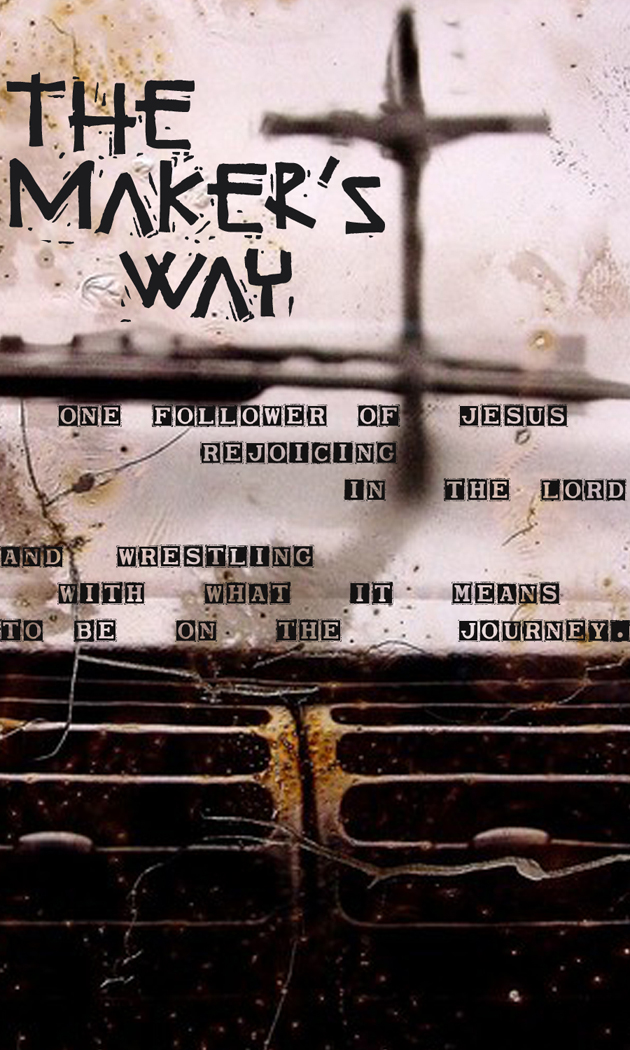I love to use the word "adventurous" when applied to the Christian faith. If the journey is not an adventure, if it is not exciting and fun, if it is merely a walk through Walmart or Crate and Barrel, what is the point? If we shrink-wrap and present the gospel of Jesus as a preserved tasty morsel to be partaken of as dessert or in between meals, then we limit the power, the uncertainty, the mystery, the majesty, the danger, and the excitement.
My mom always used to remind me, and often still does... "Let go and let God..." That simple, yet profound wisdom can be applied so often not only to our faith, personally, but also to our corporate faith journey as well. If our denominational leaders would learn to simply "Let go and let God... direct local, national and international missions and ministries, determine how local congregations engage their communities, spend their monies, name their gatherings (if at all), build their buildings (if at all), contextualize the Gospel, etc... When the indigenous leaders in colonized countries in Africa and other places like China, were freed up to apply the good news (initially brought pre-packaged by well-meaning missionaries) to their context, their cultures, within their worldviews, all hell broke loose, and the Gospel truly became Gospel to those folks. To "Let go and let God..." is a frightening thing, because it involves faith - real faith, not just a controlled, religious, ritual, institutional faith. To "let go and let God..." is to be adventurous.
Saturday, April 19, 2008
Wednesday, April 16, 2008
Why do we do what we do?

The Global Christian Church is both diverse and yet unified by Christ's Spirit. The majority of Christianity is no longer seated in the northern hemisphere in Western nations, but now is South in countries like Africa, South America and China. We have much we can learn from our international brothers and sisters. I think that if we are humble and open to critiquing ourselves and practices, we will benefit. So much of our current practices in the western church are enculturated representations of the gospel. And without realizing it, many of our traditions are pagan in origin, outdated and arguably may no longer apply to our culture today...
paid clergy - Constantine created a salaried priesthood
majestic buildings - Constantine transformed the Roman Government buildings into worship centers.
infant baptism - primarily a result of civil religion?
Altars with candles/Rails/procession into Sanctuary /choirs /central seat for priest - the ancient Roman emperor processed into gatherings with choirs singing, and sat at the central seat of honor - this became the process for priests in the state adopted church - the altar table with candles came straight out of the pagan temples - the rails separated the clergy (now a separate class) from the laity (a new word to describe 2nd class Christians.
Pulpit preaching, Robes and the Offering - The traveling Sophists wore special clothes and preached eloquent "sermons" to the delight of many people, and at the end of their speech, passed the hat for donations - many of these intellectual philosophic speakers became the early bishops/fathers of the church when they converted to Christianity.
The list can go on and on - and yet we continue many of these practices as if they were the fundamentals of the gospel. We need to realize that just like the early African church, who are currently dealing with cultural issues like ancestor worship and polygamy, at one time these Western forms were much needed applications for communicating the gospel to the early converted pagan/gentile church. At what point do we re-evaluate our practices and forms in light of the surrounding local culture to ensure that we are accurately communicating and living the good news with those within our reach? Will the young churches of Africa and the south eventually reach this point of amnesia regarding forms and practices?
Wednesday, April 2, 2008
Subscribe to:
Posts (Atom)
















.jpg)


